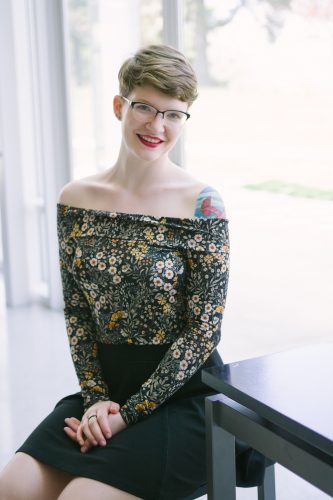Nicola Etter ՚19 tells her Cornell story
In addition to the overt beauty of this campus, Cornell excels in providing students with faculty who genuinely care about each student in and out of the classroom.
Since most classes have fewer than 20 students, I was able to establish a personal connection with the professors from every class I took. What sets Cornell apart from other schools is that the faculty are not only well-prepared to teach but that they connect with each student to provide individualized attention and support.
When I visited Cornell for the first time, the faculty seemed to have a genuine interest in teaching and helping push students to achieve their academic potential. I was able to work with professors individually in every course, and without fail, they helped to propel my academic skills in analytics, writing, and research. The focused block plan schedule in conjunction with specialized one-on-one faculty support created a rigorous academic environment that was imperative to my success at Cornell College.
By my junior year, I was insistent on graduating from Cornell with the unthinkable: three individual majors. I have a strong passion for and inclination to learning; when I find a subject I love to study, I take as many courses in that field as I can. In just over two years at Cornell, I was on track to graduate with majors in philosophy, sociology, and religion.
I am endlessly curious as to the motivations behind the thoughts, actions, and beliefs that people hold, and all three majors pursue this topic from their own unique perspectives. I also greatly value the skills crucial to each major, including critical thinking, the ability to analyze philosophical and sociological theory, and the knowledge of and fluency in a variety of cultural and religious texts.
These majors have all led me to become an increasingly compassionate individual, with extended knowledge and understanding of social problems on a global scale.
My greatest challenge at Cornell was learning how to handle significant personal challenges while continuing to pursue my goal of graduating and obtaining a college degree. Throughout college and into my senior year of Cornell, I faced the tremendous difficulty of pursuing an academically rigorous degree simultaneously with the immense weight of the knowledge that my mother was dying from a terminal illness. While I knew this would be an enormous challenge before coming to Cornell, I didn’t realize just how extraordinarily difficult it would be until college began. It was with the continued support of my family, friends, and faculty for four years that I was able to gain and build up the motivation, strength, and courage to complete my degree with a triple major while also being elected to Phi Beta Kappa. Having faced one of the most difficult experiences of my life, I feel incredibly prepared to face any future challenge that comes my way.
My biggest achievement at Cornell was successfully submitting a paper for publication in the Spring 2019 issue of the Midwest Journal of Undergraduate Research (MJUR). I conducted secondary data analysis using the 2014 General Social Survey, and I analyzed the correlation between religiosity and altruism. My work entailed an extensive literature review, combining and recording relevant variables, and creating and analyzing bi-variate and multi-variate tables for over 1,000 participants. This research serves as one culminating piece to my sociology major because it demonstrates my breadth of knowledge and fluency in quantitative data analysis, and my ability to clearly and concisely communicate quantitative findings to a general audience. I am incredibly proud to have my hard work recognized in this publication alongside other notable undergraduate students selected for this journal.
I am currently completing a research project on Japanese sociolinguistics with support from the sociology and anthropology departments. I started this paper in Block 4, continued it through Block 5, and completed it at the end of Block 8. I have gained knowledge on the historical timeline of the categorization and development of gendered language in Japan, starting as early as the eighth century. More specifically, my research focuses primarily on the shifting patterns of language prevalent among Japanese women, and how those practices have evolved into present-day Japan. With an increasing number of Japanese women holding positions of authority in the workplace in the 21st century, I am primarily concerned with how language is being utilized to navigate these different occupational settings while simultaneously conforming to gendered roles and expectations of women in contemporary Japan.
I am moving to Chicago at the end of the summer to pursue internships related to urban design and planning, and I am also seeking jobs related to housing or immigration. By the end of the following year, I plan on traveling to Japan to teach English or conduct independent research in order to solidify my skills in Japanese. Afterward, I intend on attending graduate school for a degree in either Asian studies or urban planning.
Nicola’s Hilltop favorites
Favorite spot: I love sitting beneath the magnolia tree in front of Armstrong Hall in the spring because the blooming flowers are the most beautiful on campus.
Student organization: Phi Lambda Xi, because they are like a second family to me. I made some of my closest friends through joining this group, and they are consistently one of the most positive and supportive groups I have ever been a part of.
Favorite food: Vegan chocolate cake—hands down. This is the best cake on campus, and it’s so decadent and delicious. It’s a must-try while you’re here if you’re lucky enough to catch them serving it behind the counter on the rare occasion they make it.



